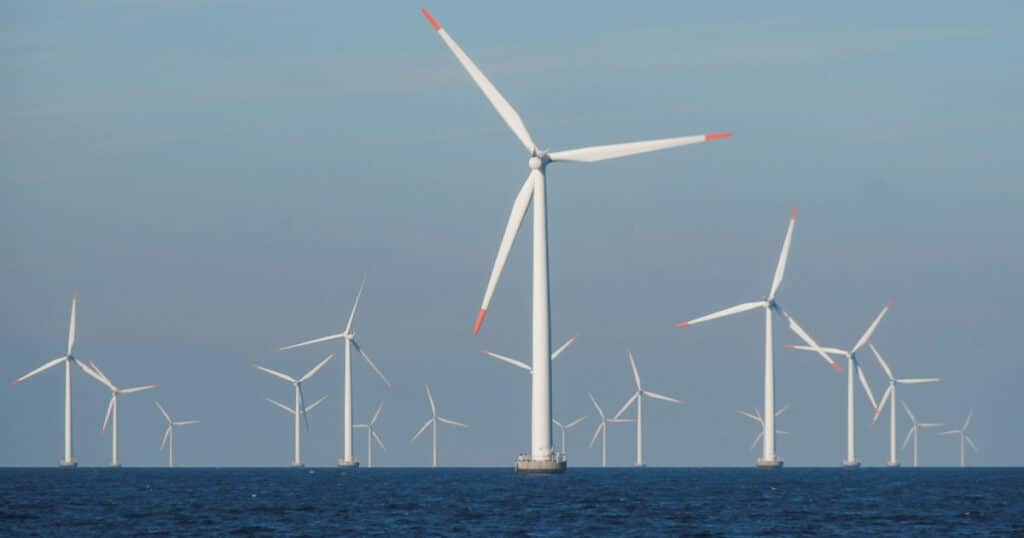
Ford Reports “Shocking” EV Losses
The Biden administration and every liberal out there knows that the elimination of fossil fuel is not necessary and won’t work. This means that the push for solar and wind power and eliminating everything that runs on gas is a pipe dream. The ridiculous idea that every car is going to be electric is nonsense. They’re way too expensive to purchase and much too expensive to maintain, add additional weight that wears out tires and roadways faster, take too long to charge, and are a dangerous fire risk. Not to mention that the components needed for the batteries essentially ruin any area where they are mined.
Like many other manufacturers, Ford is grappling with the realities of the EV market. As reported by Bloomberg, they have started reducing orders from their battery supplier due to sluggish sales. Insider sources reveal that the company incurred a staggering loss of $100,000 per EV in the first quarter of 2024.
The EV market nationally took a major hit during the first quarter of the year, dropping last month from a 4.7 percent growth rate to a 3.3 percent growth rate, a substantial decrease from last year.
The sales decreased year-over-year from 7.6 percent to 7.15 percent in the first quarter. The AP reported that declining sales numbers support some automakers’ belief that they moved too aggressively in expanding their EV production.
As reported by Bloomberg, Ford has decided to cut its spending on battery-powered models by $12 billion in an attempt to revamp its strategy. The reason is simple: the company has forecasted that it will lose approximately $5.5 billion on EVs this year.
“We’ve seen prices coming down quite dramatically, and that’s why we haven’t been able to keep up from a cost reduction standpoint,” Ford’s CFO, John Lawler, told analysts on the company’s earnings call on April 24, according to Bloomberg. “But we’re targeting to take out as much cost this year as we can on Model E, all in the spirit of driving toward that contribution margin positive.”
Ford has shifted its focus to producing smaller, more affordable EVs and is fast-tracking the release of new models expected to debut in 2026. Prices reportedly start at $25,000.
According to Bloomberg, Farley expects these new EVs to turn a profit in their first year. If all goes to plan, the price-cutting move could make Ford one of the biggest players in the EV market.
In my humble opinion, even though Farley appears to be trying to temper his enthusiasm, I see the EV market continuing to shrink. So, even if Ford accomplishes its goal of being one of the biggest in the market, it sounds like it is looking at a big fish in a little pond scenario.
For some reason, Ford and the other automakers lulled themselves to sleep, thinking that the EV market was the undeniable future. The reality is that it is not, and the sooner they and other manufacturers realize that the sooner they can gear their efforts toward the true future, which greatly resembles the past.
Ford and the other manufacturers must ask themselves why the American public would buy vehicles that make their lives more difficult. The bottom line is this: EV demand isn’t enough for traditional automakers to justify shifting their production from gas-powered to electric.
Until the recent decision to reduce prices, Ford’s electric vehicle options were quite expensive. The electric version of the classic Mustang, the Mustang Mach-E, is listed on Ford’s website with a starting price of just under $40,000.
Even more shocking, the cheapest version of its electric pickup truck, the F-150 Lighting, starts at $62,995. By comparison, a traditional F-150 starts at just under $37,000.
As I mentioned earlier, even if the public could swallow the ridiculous purchase prices, they would be saddled with more frequent mechanical issues and substantially higher repair costs.
The writing is on the wall; electric vehicles can’t compete with gas-powered alternatives. The fact that Ford and other manufacturers didn’t have the foresight to see that basic fact represents a serious error in judgment.
Gas cars are not being eliminated, period. The truth is simple: EVs are not sustainable as the main source of vehicular transportation. Perhaps Ford and the other manufacturers should replace the decision-makers with realists and delegate the woke liberals to something harmless. However, there is no assurances that they won’t screw that up as well.



